Exploring Islam and Muslims: A dualistic approach in Muhammed Abduh’s observation
“I went to the West and saw Islam, but no Muslims; I got back to the East and saw Muslims, but not Islam”, more than 100 years ago, Muhammed Abduh said this after coming back to Egypt from France. He wanted to show how there is a big difference and dichotomy between the religious principles and conduct of its adherents. This observation is still relevant today, as we see how Islam and Muslims are seen in different ways in the Western and Eastern parts of the world. Some experts and academicians criticized Abduh, saying he felt inferiority complex because he saw the eye-catching development of Europe, and he wanted Islam to be more like the West, or simply a concept of Westernized-Islam he talked about. Even though people had multifaceted opinions about his ideas, they are important for understanding why there are problems like terrorism, famine, civil wars, epidemic, human rights violation, and other issues in countries where Muslim-majority are there. These perceptions and problems can be traced back to historical events like the Crusades and colonialism, and even how the media portrayals and political narratives talk about Islam, which contributed to a sense of incomplete understanding of Islam’s teachings leading up to misconceptions and stereotypes.
Some years back, two professors from Iran who work at George Washington University in the United States wrote a detailed article. They made a list of a complicated set of socio-economic number that show how well different countries follow the teachings of the Quran and the Prophet Muhammad ﷺ. The former follows a particular conservative strain of Islamic doctrine, while the latter is one of the highest Muslim majority countries.
Islam is more than just doing religious practices like praying and fasting. What really matters are the results, like making society fair and ensuring everyone has enough. We should know that Islamic values are similar to the good values that exist everywhere. Islam has many of the same values that Western countries are proud of today. The core values of organizations like the United Nations, such as Integrity, professionalism, getting along with others, respecting differences, leading well, and social and economic justice, are aligned with Islamic teachings.
Recently, Boris Johnson announced that he's stepping down as a leader in Britain because of the mass resignation of members of the government in Britain.This shows how Western countries like Britain care about important things that affect the whole world, such as stopping climate change by 2050, letting people speak their minds, and making sure everyone from different religions and cultures can live together peacefully. These ideas which the western countries hail to as universal values these days actually came from Islamic teachings. The emergence of Europe as a superpower is not a story of a decade, rather it took them centuries to present themselves in the best version and thus the world became Euro-centric or Western-mentality. They could experience this only after ensuring that quality education is provided, brilliance and intelligence is encouraged, peace and security is promoted, and most importantly fundamental rights and freedom is respected. This is what Abduh meant when he talked about the West. Back in his time, France was the center of knowledge. Most of the philosophical schools, literary critics, and political revolutions emerged from there. In Abduh’s statement, the utilities that Western countries enjoy today actually come from Islamic teachings and values.
In comparison, many countries in the eastern part of the world have a lot of Muslims, and their history is deeply connected to Islamic ways of living and governing. This area is dealing with lots of different problems like wars within their own countries, global terrorism, not having enough food, and being poor. It's surprising to know that 60 percent of the fights happening in the world are taking place in Muslim countries. Some events like the assassination of Jamal Khashoggi, Iran's fatwa on Salman Rushdie, and issuing fatwa on intellectual intermediates like Sir Sayyed Ahmed and Muhammed Abduh show that Islamic values aren't always being followed. Muhammed Abduh didn't get a clear view of how Islam was being practiced in the Eastern regions. While Islam calls out for open conversation, Muslims closed all the doors of ijtihad and simply relied on the interpretations of texts provided by medieval clerics. While a number of figures cried out for moderating Islam, the debate between tradition and modernity heated between academics and activists. While the rest of the world was busy making life better with better infrastructural facilities, and countries were working together on things like youth exchange, food security, media cooperation, training, and defence, the Arab world was mostly focused on having bilateral political tensions.
Here’s what I experienced a couple of years ago: I got in touch with a man from Yemen on Facebook and we built a strong rapport and affinity in between while talking to each other. But after a while, he asked me about my beliefs, the sect I belong to, the opinions I hold on issues in which a huge proportion of Muslims have different opinions about and he wanted me to acquiesce in his opinions. On another occasion, I talked to some men from some Western countries. They were more likely to see religions in the prism of equality without holding any grudge for any particular religion and to show their interest regarding learning more about other religions. This certain experience of mine convinced me more of Abdu’s viewpoint and helped me see things clearly. Although this isn’t a really deep experience, what Abdu said still makes a lot of sense and is really important.
It's not completely true that the West follows all Islamic values, the media has played a role in spreading false ideas. They've spread wrong information, like linking Islam and Muslims to extreme nationalism and harmful terrorism. There have been terrible events like the Srebrenica massacre in Bosnia in the name of ethnic cleansing, and the forced expulsion of 3 lakhs Bulgarian Muslims in 1989. There have also been many instances of anti-Muslim actions in France, Islamophobic attacks in the United Kingdom and Sweden, a large number of hate crimes against Middle-Eastern descent in the USA after 9/11. These events show how the West has often seen Islam and Arabs in a certain way.
Reference
Ahmed, F. Z., & Werker, E. (2015). Aid and the Rise and Fall of Conflict in the Muslim World. Quarterly Journal of Political Science, 10(2), 155–186.
Binder, L. (1988). Islamic Liberalism: A critique of development Ideologies.
Botman, S., & Goldschmidt, A. (1988). A concise history of the Middle East. The History Teacher, 22(1), 81.
Davis, N. J., & Robinson, R. V. (2006). The egalitarian face of Islamic Orthodoxy: support for Islamic law and economic justice in seven Muslim-Majority nations. American Sociological Review, 71(2), 167–190.
Huntington, S. P. (2000). The clash of civilizations? In Palgrave Macmillan US eBooks (pp. 99–118).
Hussien, S. (2007). Critical pedagogy, Islamisation of knowledge and Muslim education. Intellectual Discourse, 15(1).
Masud, M. K., Salvatore, A., & Van Bruinessen, M. (2009). Islam and Modernity: Key issues and debates.
Mirsepassi, A. (2010). Political Islam, Iran, and the Enlightenment.
Moaddel, M., & Talattof, K. (1999b). Contemporary debates in Islam : an anthology of modernist and fundamentalist thought. In St Martin’s Press eBooks.
Omar, I. A. (2001). Rethinking Islam : a study of the thought and mission of Maulana Wahiduddin Khan. In UMI Dissertation Services eBooks.
Shepard, W. (1987). Islam and Ideology: Towards a typology. International Journal of Middle East Studies, 19(3), 307–336.
Sikand, Y. (2003). Peace, Dialogue and Da˛wa ¥ : An analysis of the writings of Maulana Wahiduddin Khan. Islam and Christian-muslim Relations, 14(1), 33–49.
About the author
MD Sahenshah Mollah is a PG research scholar of the Department of Arabic Language and literature, at Darul Huda Islamic University, Kerala.
Disclaimer
The views expressed in this article are the author’s own and do not necessarily mirror Islamonweb’s editorial stance.

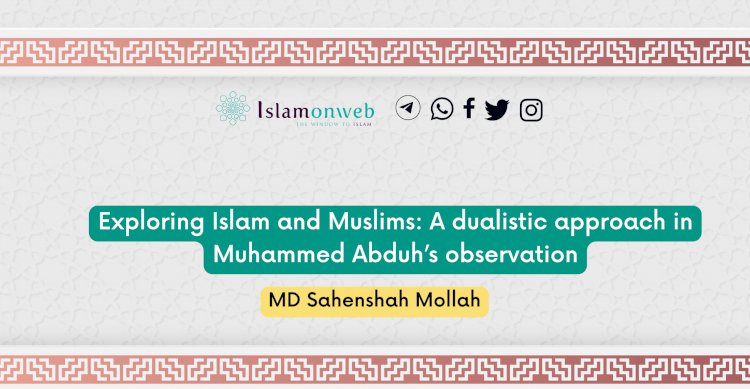



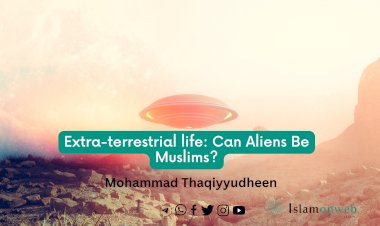
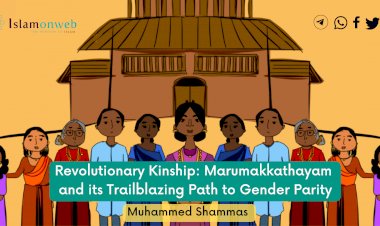
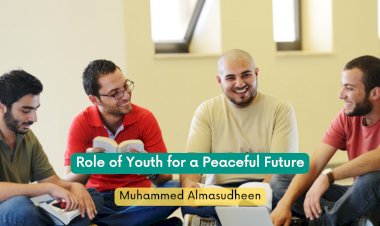
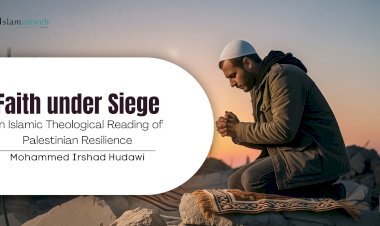
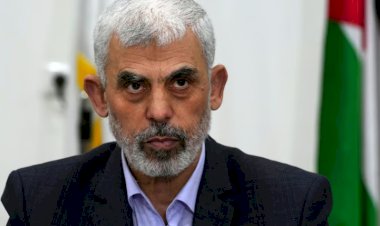














Leave A Comment